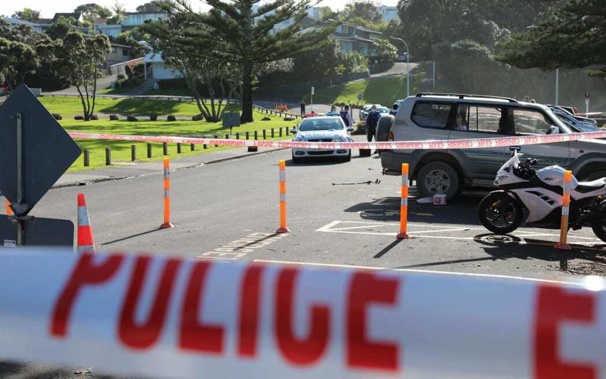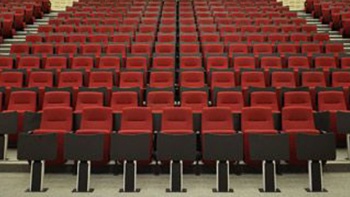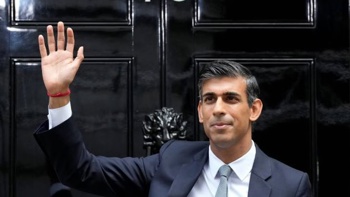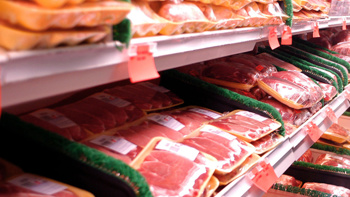
At least one Aucklander is hospitalised with stabbing injuries every day, new figures reveal, sparking fresh concerns about community safety across the city.
The knife injury figures come amid a surge in gun violence and drive-by shootings which have left many residents in the city's west and southern suburbs living in fear.
And a criminologist warns that recent high-profile stabbings in Christchurch and Auckland are likely to cause more people to carry knives for protection.
Documents released under the Official Information Act by Auckland's three district health boards show the city's blade victims suffered nearly 3000 cutting injuries in the last six years.
The treatment cost to taxpayers was nearly $20 million.
Auckland District Health Board has treated the lion's share of the city's stabbing victims, dealing with 2180 knife wounds since January 2016 - or 73 per cent of the city's total.
Counties Manukau DHB recorded the next highest with 616 blade injuries, followed by Waitematā DHB with 152.
Nearly 240 injuries involved youngsters treated at Starship children's hospital.
While the figures include violent attacks and "assault by sharp objects", they also cover other causes such as self-harm and injuries coded in the DHBs' databases as a "stabbing" or a patient being treated after being "stabbed".
Auckland has been rocked by several horrific stabbings.
In September seven people were brutally attacked by a knife-wielding terrorist in New Lynn's Countdown supermarket.
Ahamed Samsudeen grabbed a knife from an aisle before setting upon unsuspecting shoppers. The Isis-inspired lone wolf, who was under 24-hour monitoring due to his threat level, was shot dead by police.
On June 23, an armed attacker randomly stabbed several strangers at Murrays Bay and Mairangi Bay with a "big knife" before being disarmed by members of the public.
/cloudfront-ap-southeast-2.images.arcpublishing.com/nzme/UMMRJNALBNIQZAUHBX2YFKHDLM.jpg)
Police and ambulance crew at New Lynn countdown following a terrorist attack in which seven people were stabbed by a lone terrorist. Photo / Alex Burton
A 41-year-old man is facing serious charges and remains in secure care at the Mason Clinic.
And Akash, 30, who goes by only one name, was sentenced last month to at least 15 years behind bars for the "barbaric" murder of his pregnant girlfriend.
Gurpreet Kaur, 22, suffered about 30 cutting and stab wounds inside Akash's car in 2016.
On June 25, three people were wounded in separate stabbing incidents in central Auckland.
And police confirmed yesterday two people were stabbed at the West City mall in Henderson last Friday.
Auckland DHB confirmed that six people treated for stabbing injuries since 2016 had died.
Asked why its stabbing figures were so high relative to other areas, it said Auckland City Hospital was a regional trauma centre for stabbing injuries from Auckland and Northland.
"This means we receive the majority of serious trauma cases."
/cloudfront-ap-southeast-2.images.arcpublishing.com/nzme/MAR7SFCBBYJYJX5EE4NJT5RFXI.jpg)
Akash in the dock at Auckland High Court for the murder of his former pregnant partner Gurpreet Kaur near Hampton Downs. Photo / Michael Craig
Counties Manukau DHB figures show 48 patients suffered injuries so severe they were admitted for at least five days.
The most frequently stabbed body part was head/neck/shoulder/face (198), followed by hands (139), arm (84), chest (77), abdominal (53), legs/hip/thigh/feet (43), other (12) and back (10).
The data comes amid surging gun violence across Tāmaki Makaurau and a spate of tit-for-tat drive-by shootings involving rival motorcycle gangs the Tribesmen and Killer Beez.
In December, the Herald reported that the worsening turf war and criminal drug trade had resulted in a spike of firearms in circulation across the city, and 350 patients hospitalised with firearms injuries since January 2016.
More than half those victims were treated at Middlemore Hospital.
Auckland Mayor Phil Goff said the number of people admitted to the city's hospitals appeared to include victims of family violence, assaults at parties or pubs, and self-harm.
They all put unwanted pressure on stretched hospital emergency departments, already dealing with the pandemic and other illnesses.
"Alcohol and mental illness will undoubtedly be a significant factor in many of the cases.
"Knives, razors, glass and other tools used in assaults will result in serious injuries, though not the mass harm that can be caused by firearms."
Goff said use of a weapon in criminal cases was and should be an aggravating factor when handing down sentences.
"However, actions to prevent crime are the most important, particularly where we can deal with causes such as people needing mental health treatment, and actions to reduce abuse of alcohol, which is one of the most frequent factors involved in aggravated assaults."
/cloudfront-ap-southeast-2.images.arcpublishing.com/nzme/SSIYTCLU2TG5ZZRI2W2CQMHKHU.jpg)
Leading criminologist Greg Newbold says people are more likely to carry knives for protection following spate of stabbings. Photo / Supplied
Canterbury University professor emeritus and leading criminologist Greg Newbold said knife crime tended to have an epidemic element.
A spate of stabbings often resulted in more people carrying knives for protection.
Recent high-profile attacks like the random killing of Christchurch mother Laisa Maraia Waka Tunidau could cause more people to carry knives due to a perceived risk of being stabbed, Newbold said.
"People start fights with people they think they can beat and the best way of equalising is to pull out a knife."
Young people from working class areas and gang backgrounds were the most likely to carry knives, with knife crime often occurring late at night on the street, involving alcohol and strangers.
"People under the age of 25 quite often don't have an appreciation of the consequences, legal or otherwise, of carrying a knife or using it on somebody. If someone punches you in the nose and you stab them in the guts, you're in a barrel of trouble."
Tāmaki Makaurau police deployment manager Superintendent Shanan Gray noted that several high-profile violent incidents in recent weeks across the city may have caused concern.
"We understand any incident that involves violence not only affects the victim, but has an impact on families, friends and the wider community."
Gray said incidents resulting in stabbing injuries could involve various factors, which made comment on any specific trend difficult.
"Any incident where violence is used or threatened is not tolerated by police and the public can expect us to continue holding offenders to account."
Take your Radio, Podcasts and Music with you









